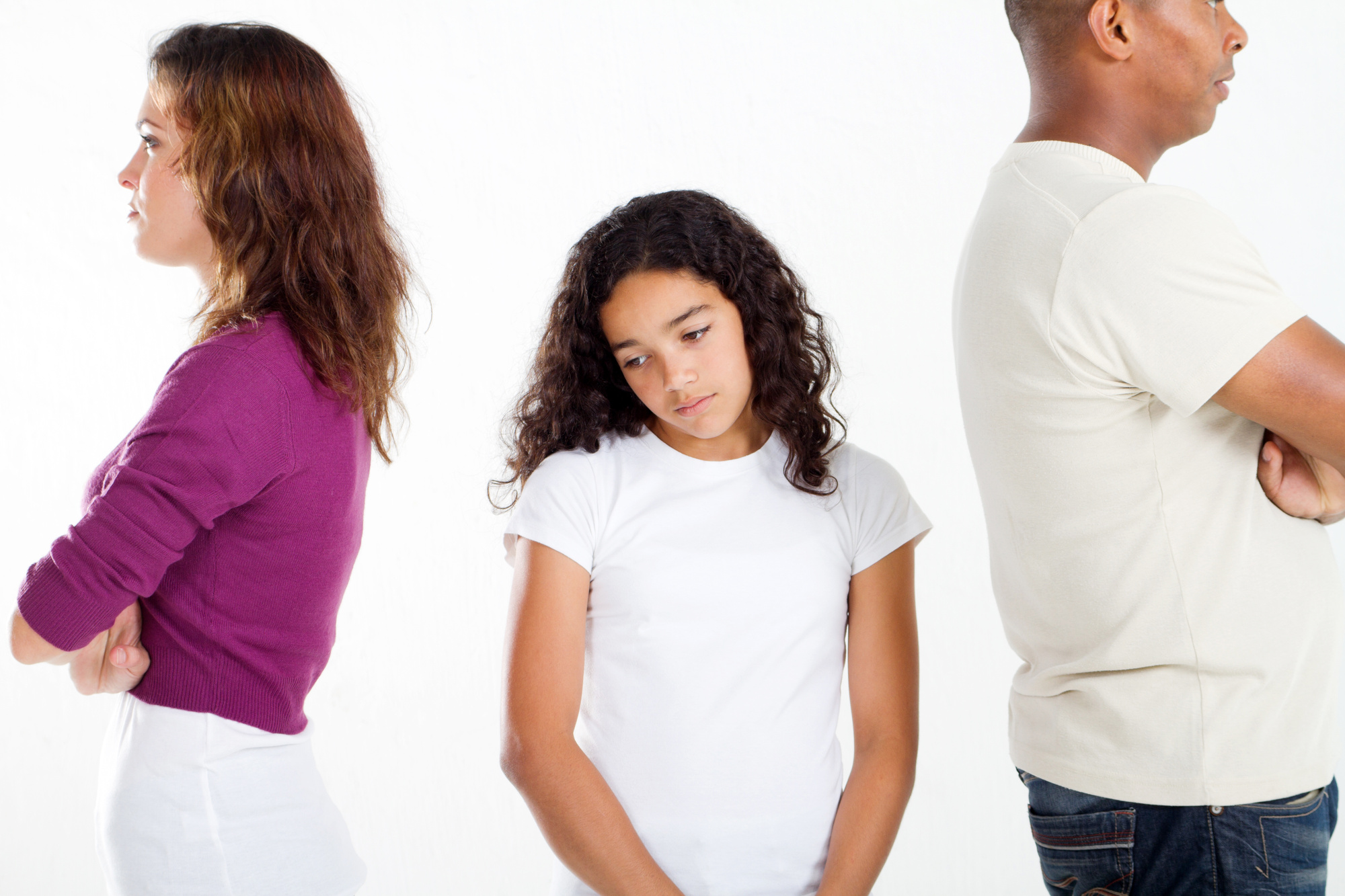
Divorce isn’t easy on anyone, but this is especially true for children. Everyone in a family feels the stress of loss and anxiety when life as they know it changes. But in order for parents to be the most helpful for their kids, they need to work for it.
We carry around our own emotions, especially guilt felt towards our children.
But divorce is nothing to be ashamed of. It happens.
Children do better when they can have each parent alone in a healthy, happy environment. In order to start really helping your child, you need to be at peace with it yourself.
Here are a few ways you can help a child coping with divorce.
1. Be Straightforward and Keep It Simple
Both parents should discuss together how they are going to approach the situation, when possible. It’s a good idea to handle the discussion of divorce together.
When you come together to tell your children the decision you’ve made, you’re making it known that you’re still a team. Try to let them know that you will still work together on the important things. You’ll both show up to their school functions and that it won’t change how you feel about them.
Keep this talk age appropriate, and try not to let your emotions get in the way. If you think for whatever reason you and your spouse won’t be able to handle the conversation without an emotional outburst, handle it separately.
Answer their questions honestly and as a team, whenever possible.
2. Tell Them They’re Loved
It is so important that you spend as much time and effort as you can making sure your child knows that they have your love. A divorce can wreck a child’s self-confidence, and now more than ever they need to hear how both of their parents are there for them, no matter where they live.
It’s also a good idea to reinforce how much the other spouse loves them too. In order to heal appropriately, they’ll need to hear and believe that both of their parents love them and are there to support them. This might be difficult, especially if you’re dealing with a less-than-reliable spouse, but don’t let up.
3. Talk About Emotions
When you’re talking to your child, it’s important to tell them how natural their feelings are. Explain that it is normal to feel sad and angry and that you’re always going to be there to talk about it with them.
Encourage an open dialogue with you and show how you accept all of their feelings. Kids who spend a lot of time lost in their thoughts and feelings do this because they don’t want to upset their parents. You can counteract this by frequently checking in and asking how they feel.
Likewise, never make your child feel irrational for these thoughts or feelings. If your spouse is being unreliable, it’s important that they can express that frustration in a healthy, productive way. Failure to acknowledge these feelings can lead to acting out in the future.
4. Make Sure They Know It Isn’t Their Fault
Children are ecocentric. This means that they believe they are the source of what happens in the world. This is especially true in a divorce.
It’s common for a child to believe that their behavior or thoughts caused a bad event to happen. They need to know that this decision has nothing to do with them and that it was based entirely on your decision as adults.
5. Don’t Insult The Other Parent
Even when you’re angry, avoid talking badly about the other parent. It’s not a good idea to pass blame around in front of your children. This is hard, especially in cases of divorce due to adultery.
But children love and need both of their parents and this behavior can quickly lead them to feel as though they need to pick a side. This can shut down an open dialogue.
A child is a combination of both of their parents. When you disrespect the other side, children can often feel as though they are the ones being spoken down to. Make sure that they feel as though both of their parents are valuable.
Do not, under any circumstances, fight in front of your kids. When you need to have a heated conversation, it needs to take place on the phone when your children aren’t around. The most poorly adjusted kids of divorce are the ones who are still exposed to fighting between parents.
Often, one of the main reasons for separation is that parents can’t stop fighting and it’s bad for the children. Do not continue this behavior after a separation.
6. Lots of Advance Notice
One earth-shattering moment to a child is when one of their parents move out unexpectedly. Make sure you give your child advance notice before one of you moves away from the home.
A great way to start is by letting your children visit the new place their parent will be staying. If possible, show them where they will sleep and eat. Talk them through some of their routines and show them how things will work.
It’s also a great idea to let the children help furnish the apartment and choose some of their belongings to bring over. Make your child feel at home wherever they will be staying.
7. Therapy
It can be very beneficial to work with a parenting expert or a therapist with experience in dealing with divorce. A therapist can help guide you in dealing with anything out of the ordinary or especially difficult that arises.
Children can also benefit immensely from talking to a therapist on their own. When a third party is involved, they can feel free to express the feelings they have that they think are hurtful to their parents.
It’s common for separated partners to disagree about whether or not their child needs therapy. It’s also normal to blame each other for your child’s distress.
Even if you think your child is having more trouble with their other parent, try not to jump to conclusions. Kids express parts of themselves differently in each house.
If you notice that your child isn’t eating or sleeping normally, or that their sadness is persistent over a period of weeks, it’s a good idea to consider therapy.
Likewise, if they lash out a lot and it is interfering with their normal activities, talk to the other parent about coming to an agreement on therapy. If you’re not sure, it’s always important to be safe rather than sorry.
8. Accept Your Child’s Actions
Your child is going to need a lot of time, support, and open communication to heal from this wound. When a family is going through a divorce, it’s common for children to act out, withdraw, and regress.
Some children wet the bed and refuse to listen. This is all normal, common behavior. You need to be there to understand and support them during this tumultuous time in their lives.
Over time, this will go away. Your child will adapt to the changes in their lives. Consider planning some family events that they love and help them feel as though their life will go on.
9. Be Consistent
Consistency and routine go a long way toward providing a child with comfort and familiarity. Whenever you can, give your child a lot of advance notice about any changes and stick to a schedule.
Kids will benefit immensely from one on one time with each parent. No matter how hard it might be, try to be accommodating with your ex-partner as you decide on a regular, consistent visitation schedule.
As much as you can, work together to keep routines similar in both houses. This includes discipline, bedtimes, rules, and homework.
You can’t enforce rules in your ex-partner’s house but stick to them in yours. Don’t relax limits, but understand when children want to push boundaries.
10. Take Care of Yourself
During this time, get help dealing with your own feelings about the divorce. When you are able to adjust properly, your child will be able to eventually do so too.
You are a model for your children’s behavior. Be patient with yourself and in turn with your child. Healing from this emotional loss and pain will take time and comes in phases.
The sooner you are able to heal, the sooner they will too.
Helping a Child Coping With Divorce
There is no doubt that divorce is hard on everyone. But as long as you continue to make your children feel loved by both parents involved, they will grow. Work together with your spouse to create a stable, calm environment and over time they will find that everything has become a routine in this new family dynamic.
For more information on handling a child coping with divorce, and all other aspects of mom life, check out the blog! You’re not in this alone.
